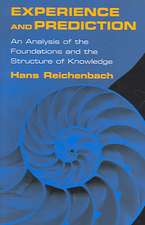Jacques and Raïssa Maritain – Beggars for Heaven
Autor Jean–luc Barré, Bernard E. Doeringen Limba Engleză Paperback – 21 iul 2022
| Toate formatele și edițiile | Preț | Express |
|---|---|---|
| Paperback (1) | 344.82 lei 6-8 săpt. | |
| MR – University of Notre Dame Press – 21 iul 2022 | 344.82 lei 6-8 săpt. | |
| Hardback (1) | 841.02 lei 6-8 săpt. | |
| MR – University of Notre Dame Press – 30 oct 2005 | 841.02 lei 6-8 săpt. |
Preț: 344.82 lei
Nou
Puncte Express: 517
Preț estimativ în valută:
65.99€ • 68.64$ • 54.48£
65.99€ • 68.64$ • 54.48£
Carte tipărită la comandă
Livrare economică 14-28 aprilie
Preluare comenzi: 021 569.72.76
Specificații
ISBN-13: 9780268203498
ISBN-10: 0268203490
Pagini: 528
Ilustrații: 43 Halftones, unspecified
Dimensiuni: 153 x 227 x 31 mm
Greutate: 0.7 kg
Editura: MR – University of Notre Dame Press
ISBN-10: 0268203490
Pagini: 528
Ilustrații: 43 Halftones, unspecified
Dimensiuni: 153 x 227 x 31 mm
Greutate: 0.7 kg
Editura: MR – University of Notre Dame Press
Recenzii
"[Jacques and Raïssa Maritain's] lives spanned the period running from the Dreyfus case in 1894 to the death of Jacques Maritain in 1973. And since they had been involved, personally and intellectually, in all the agitations of this momentous period in both French and world history, this account of their lives offers a fascinating panorama of the clashing ideas and ideals that still echo in our own time." —The New Republic, January 30, 2006
“ . . . Outstanding translation.” --Catholic Library World, Volume 76, Number 3, March 2006
"First published ten years ago, this was the first true biography of Jacques Maritain, and it has had no rivals since. . . His complete works in French have been published, and there is an English collected works in progress. Barré's biography has given new stimulus to this welcome longevity, and Bernard Doering has put us in his debt with his elegant translation." —First Things(November 2006)
“The translation by Bernard Doering, himself a scholar of Maritain, well conveys the stylish, sometimes impressionistic prose of the original, and is a pleasure to read. Highly recommended to all academic libraries and devotees of the French philosopher.” --Catholic Library World, Volume 76, Number 3, March 2006
"Jean-Luc Barré's book is an important contribution to understanding Jacques and Raïssa Maritain, and it has been rightly recognized as providing insights into the life and character of a couple who, for a time, seemed to have their finger on the pulse of intellectual life and culture in mid-twentieth century western Europe and the Americas. Bernard Doering makes Barré's work accessible to a wide audience by providing a generally accessible, fluid, and readable translation. The greatest virtue of Barré's book is his ability to bring to life something of the early life and times of Jacques and Raïssa Maritain -- particularly of a youth that Jacques Maritain himself seemed to prefer to leave largely shrouded.... Doering's translation is clear and fluid, and he has rightly sought to give a fluid, rather than a strictly literal, translation of Barré's idiom. Those who know little of Jacques and Raïssa Maritain will learn much from this book; those interested in the arts and letters in France between the wars will learn much as well." —Notre Dame Philosophical Reviews, May 2006
"Bernard Doering has done an extremely admirable job translating Barré's prose. . . Barré's book serves as a good foundation. His extensive use of the Maritain archives at Kolbsheim will doubtless aid future scholars." —Religion and Literature(Summer 2006)
Notă biografică
JEAN-LUC BARRÉ, a journalist and historian, is the author of several books, including Le Seigneur-Chat: Philippe Berthelot, 1866-1934.
BERNARD E. DOERING is professor emeritus in the Department of Romance Languages and Literatures at the University of Notre Dame.
Descriere
Descriere de la o altă ediție sau format:
This award-winning book, written by Jean-Luc Barré at the request of the Maritain Archives in Kolbsheim, France, and published in France in 1995, was the first biography of noted French philosopher Jacques Maritain and his wife Raïssa. Drawing on the wealth of Maritain materials at the Kolbsheim archives, many of which are unpublished, Barré offers a clear and objective account of the remarkable lives and intellectual pursuits of the Maritains. Noted scholar and translator Bernard Doering has now made this essential work available for the first time in English.
Jacques and Raïssa Maritain: Beggars for Heaven focuses not only on the Maritains' philosophical work, but also on their pursuit of social justice, their opposition to the Vichy, their battle against intellectual repression in the church, and their contemplative life of prayer and devotion. Barré places a particular emphasis on the Maritains' close and supportive friendships with novelists, poets, painters, and musicians who were considered revolutionary at the time. Doering's translation will appeal not only to scholars but also to anyone interested in intellectual history generally and the intellectual history of modern Catholicism in particular.
Reviews of the French Edition:
"With respect and admiration . . . doing the work of a historian as well as a biographer, Jean-Luc Barré has spun out the life thread of the Maritains. Above all he has found, between the history of the century and the personal history of this couple, a very just balance. . . . From every point of view, from the multiplicity and the complexity of the historical figures of the Maritains-from the most intimate aspects to their outward 'engagements'-the biography furnishes all the necessary information. It puts into relief the line of force which dominates and orders this life."
—Le Monde
"Few French intellectuals have had in the world, and while they were still alive, as much influence as Jacques Maritain. . . . The work of Jean-Luc Barré lets us reconstitute the itinerary of these beggars from heaven, in part philosophers, in part mystics. . . . [It offers] finely chiseled portraits . . . and an encyclopedic knowledge of that world of yesterday which we forget so readily."
—Figaro Littéraire

















